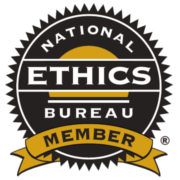Thinking About Your Lifestyle in Retirement
If you are nearing retirement age, you may be exploring ways to put your retirement savings to work in creating a reliable income for yourself well beyond your working years. You may have already devoted some time to speaking with someone to help you accomplish this, because let’s face it, retirement is complicated. Most of the topics surrounding retirement involve money, and rightfully so – it’s the main thing on most American retiree’s minds. Aside from money, however, there are other lifestyle factors that will be key drivers of your retirement success.
Balancing both the management of your finances and your lifestyle in retirement will play large roles in how you’re able to enjoy your new chapter of life.
By exploring the topics listed below, you may gain some insight on ways to make your retirement more comfortable and enjoyable.
1. Downsizing may make a lot of sense
The choice to downsize your home once you enter retirement is a big decision, but, depending on your homeownership costs, it may potentially be one of the best ways to create retirement income by extracting equity from your home to serve you elsewhere in your retirement budget. Many retirees require a larger house and more property to raise their family – commonly in houses with multiple floors and two or more bedrooms and bathrooms. Once the children become adults and move out, retirees often find themselves with too much space.
In addition, many retirees, as they prepare to grow older, may have a desire to have all of their rooms and utilities located on one floor, eliminating the need to travel up and down stairs to complete daily tasks like laundry, cleaning or cooking. A smaller yard may also mean less upkeep and maintenance. As mentioned, downsizing to something more modest may create immediate equity to help accomplish other retirement goals, and likely will also cost you less in taxes, insurance and utilities. Beware, however, the costs associated with downsizing. Do your homework to ensure real estate and moving costs don’t eat away your newly-recognized equity.
2. Make your physical health a priority and a hobby
The cost of assisted living facilities jumped 14 percent in 2017, to more than $54,0001 per year, so it’s easy to understand why so many Americans have large amounts of their retirement savings wiped away due to the need for some sort of long-term care. A multitude of factors
play into your health in retirement, but staying active and working on building and maintain strength can make a world of difference in preserving your mobility, balance, posture and overall well-being. While we as humans will undoubtedly age, and if we live long enough, may eventually require some form of living assistance, you can help stave off the aches and pains of old age with a healthy diet and regular workout routine. In addition, many retirees are making a hobby out of their fitness activities, and it’s easy to see why – yoga, cycling, water aerobics, dance classes and golf are all great ways to stay fit and meet new friends. In addition, studies show exercise can reduce your chances of a fall, and can boost memory and prevent dementia.2
3. Consider a part-time job to stay active
Many retirees find it difficult going from forty or more hours of work per week down to zero when they retire. With so much more free time, it’s easy to see why. In addition to extra time, many retirees underestimate the socialization aspect of working life. Many Americans are finding that going from full-time employment to an enjoyable part-time job strikes the perfect balance – it allows them to retain some semblance of work-related accomplishment, along with the socialization factor mentioned previously. In addition, the added income from working part time allows you to stretch your retirement budget further or leverage the extra cash for investments. Working part time may also allow you to delay touching your tax-deferred dollars, saving them until you absolutely need to withdraw them and they become subject to taxes.
If you have questions about preparing for retirement, call Nevada Senior Advisors at 775-674-2223.

